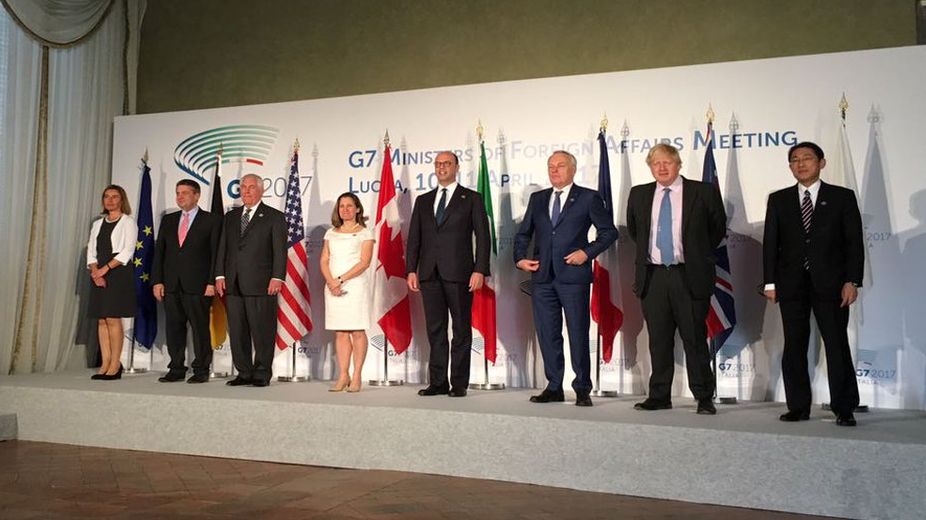The Group of Seven believes military intervention cannot end Syria's brutal civil war and that Russia should be involved in a political solution to the conflict, Italian Foreign Minister Angelino Alfano said on Tuesday.
"We don't believe that the military solution is the right one," Alfano told journalists after chairing a round of G7 talks in the Tuscan city of Lucca.
The Foreign Ministers of Saudi Arabia, Turkey, the United Arab Emirates, Qatar and Jordan also attended the talks.
"There is the will by all parties (at the talks) to take forward a political, not a military process," Alfano stated.
Officials at the G7 talks agreed that including Syria's ally Russia in negotiations was crucial, Alfano said.
"Russia must not be isolated and on the contrary must be involved in the political transition process in Syria, in so far as this is possible," he said.
The G7 officials agreed that Russia must exert strong pressure on Syrian President Bashar al-Assad if it wants to end the more than six year long conflict, but stopped short of threatening Moscow and Damascus with more sanctions.
US Secretary of State Rex Tillerson was due to fly to Moscow from Italy on Tuesday to hold talks with his Russian counterpart Sergey Lavrov, amid mounting tensions with Russia over the US missile strikes against a Syrian air base last week, days after a suspected chemical attack on a rebel-held town in northern Syria that killed over 80 people.
During the G7 talks, Tillerson insisted the Syrian President could not play a part in the country's future, a position shared by the group.
"It is clear to all of us that the reign of the Assad family is coming to an end," Tillerson stated.
He also won support over the retaliatory strike in Syria, which he called "necessary as a matter of US national security interest".
At the start of the two-day conference, British Foreign Secretary Boris Johnson urged targeted sanctions against senior Russian and Syrian figures but the proposal failed to make headway.











